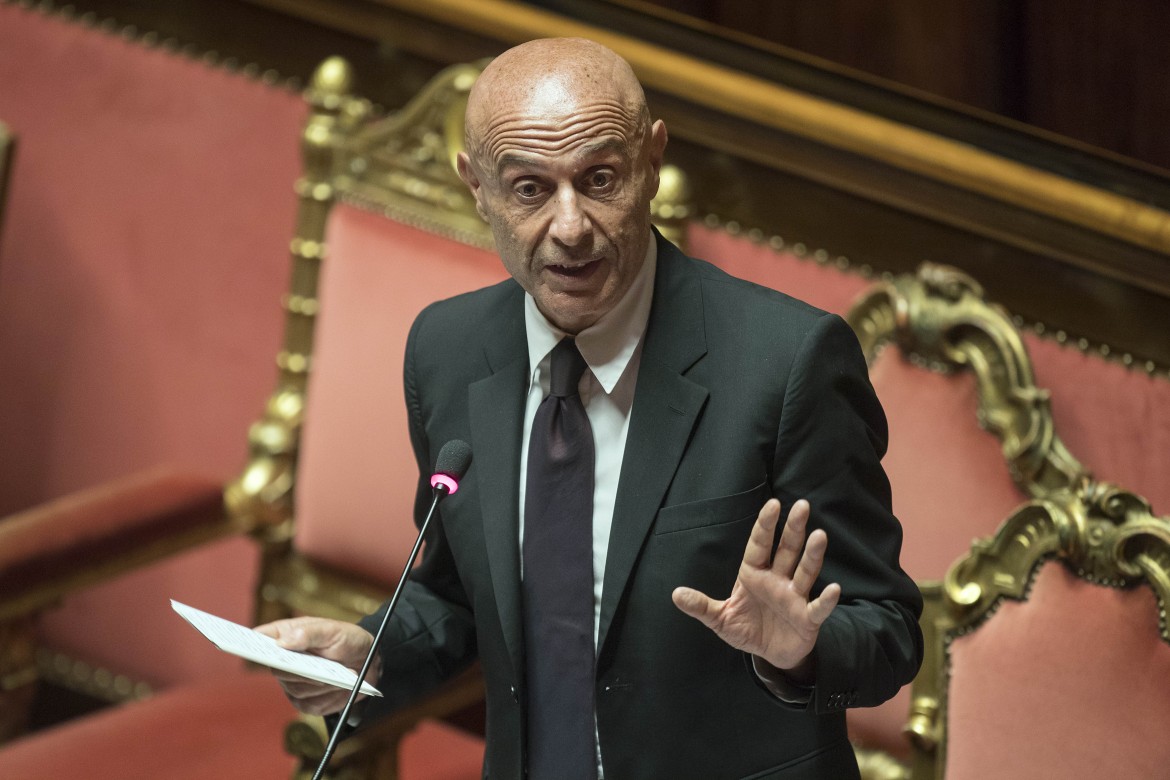Summit in Tallinn
Europe says no to Italy: no ports for migrants
After France and Spain, yesterday Belgium, Netherlands and Germany rejected the Italian request. “It would be a pull factor”

Nobody believed the Gentiloni government could get any good news out of the summit in Tallinn. But even minister Minniti must have been surprised by the high and hostile wall the Interior Affairs Ministers of the European Union mounted against Italy.
Without even masking it in a cloak of diplomatic words, Europe has plainly told us it has absolutely no intention of sharing the migrants who arrive to our country, so if the Italian government wants to close its ports to ships of foreign NGOs, as it threatened just a week ago, it can do it.
This halt was made even harder by the position taken by the EU commissioner on Immigration Dimitri Avramopoulos which excluded, as Rome instead had asked, to be able to change the mandate of the European mission Triton, even though he did backtrack on his words.
The “regionalization” of migrants, namely the possibility of them disembarking in other European ports outside Italy, will be discussed next Tuesday in Warsaw at the headquarters of the Frontex’s Management Council, the European border agency. But it will be better not to get any hopes up.
For Minniti, yesterday must not have been a pleasant morning. Just after arriving to the Baltic country, one after the other, first Belgium, then the Netherlands and Spain and finally even the usually «supportive» Germany declared their unwillingness to open their ports. “There is a risk it would result in a pull factor that we want to avoid,” explained the German diplomatic sources, dusting off an old cliché about the bailouts in the Mediterranean that has gone on since the Mare Nostrum mission.
In fact, with the upcoming elections, after having delayed the Dublin reform, Chancellor Merkel now aims to take shelter from the hits that certainly would come from the right, if Germany opened the doors of the country to migrants again.
The show of shields yesterday – with strong support from the countries of the Visegrad Group – now makes the situation in Italy even more difficult. Italy faces the summer period, during which landings are likely to increase by the day. But after the statements of the recent days, it is now cornered and must decide whether to follow or not on the threat to close the ports, thus limiting landings.
If this decision is implemented, it would transform an already difficult situation into a humanitarian and political disaster.
Due to this, yesterday Minniti agreed to focus on the results, which follow the points of the Action Plan launched by the European Commission, intended to make the lives of migrants even more difficult. It ranges from the refunding of the Fund for Africa, to be used to support countries of origin and transit of migrants, and Libya in particular. In Tripoli, a center of coordination of rescues at sea will be created. In addition, Libya, along with Egypt and Tunisia, should develop their research and rescue areas (SAR) further, while simultaneously repatriations will go up.
“For Italy, it is the most important measure endorsed today,” said Avramopoulos. “We’ve learned that the majority of migrants arriving in Italy are economic migrants: they must go back home, it is the only option.” Minniti has finally explained that the countries of origin that do not facilitate repatriation “will have visa restrictions by individual European countries. This, too, is an unprecedented initiative.”
Finally, the new code of conduct for NGOs, the point on which Italy has insisted more and yesterday the EU has made it its own. It consists of eleven prohibitions that the ships of humanitarian organizations engaged in the Mediterranean will have to comply with, from the prohibition to enter Libyan waters to the prohibition to turn off the transponder on board, they are also forbidden to transfer migrants to other Italian ships or ships participating in European missions and are required to carry a judicial police officer onboard.
Finally, Africa was also discussed at the Foreign Affairs Ministry, where yesterday a summit was held with the migrants’ transit countries.
In addition to Minister Angelino Alfano, there were foreign ministers of several European countries and representatives of the governments of Libya, Niger, Tunisia, Egypt, Chad, Ethiopia and Sudan. “We have to shift our action to the south of Libya, to make sure of reducing the number of migrants who access it,” Alfano said after the meeting, during which Italy has pledged to invest €31 million to be allocated as follows: 10 for strengthening the Libyan southern borders, 18 to be allocated to the IOM for voluntary repatriation from the North African country and finally, three million to the UNODC, the UN agency in charge of fighting human trafficking.
Originally published at https://ilmanifesto.it/leuropa-dice-no-allitalia-niente-porti-per-i-migranti/ on 2017-07-07
